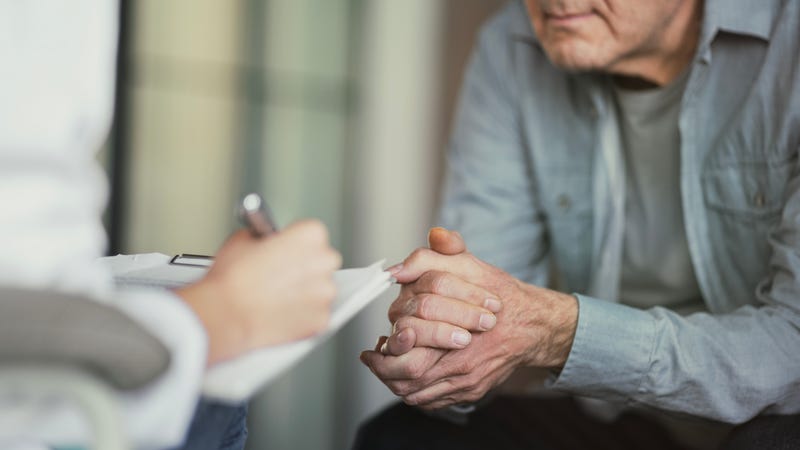
PHILADELPHIA (KYW Newsradio) — Breast cancer in men? It may not be common, but it does happen.
Everyone is born with BRCA1 and BRCA2 genes — tumor suppressors that help fight cancer — but for every 1 in 200 people, those genes are mutated, which increases the risk for cancer.
Many women undergo genetic testing for gene mutations to assess breast cancer risk, but BRCA gene mutations also put men at higher risk not just breast cancer but prostate and pancreatic cancer as well.
“We recommend that men with a BRCA mutation start doing prostate screening around age 40 — or, depending, maybe younger, if they have a relative who had prostate cancer even younger,” said Dr. Kara Maxwell, director of the Men & BRCA Program at Penn Medicine’s Basser Center.
According to the CDC, people may be at higher risk of BRCA1 or BRCA2 mutation if they have several relatives with breast cancer or ovarian cancer, or a relative with a known BRCA gene mutation. There is an additional risk for mutation if you’ve had breast cancer before age 50.
Penn Medicine has been trying to educate men about genetic testing, which could put them ahead of the game in the fight against cancer.
The risk of breast cancer for men is up to 5% with BRCA1 mutations and 10% for men with BRCA2 mutations.
“Not too many men get breast cancer, but in BRCA carriers there is a higher rate. And men can just sort of be aware of the fact [that] men can have breast tissue. If there's a lump there, that's abnormal. I should have my doctor check it out.”
She says genetic testing remains underutilized, but is now fairly inexpensive and covered by most insurance plans.
“When we first started doing genetic testing people … that's a $5,000 test. Now it's a $250 test. That's still really out of reach for many people, but it's getting better, and more and more insurance companies are covering it completely.”

